Discover The Mediator's Studio
The Mediator's Studio

The Mediator's Studio
Author: An Oslo Forum podcast
Subscribed: 130Played: 1,799Subscribe
Share
© Copyright 2024 An Oslo Forum podcast
Description
What happens behind closed doors when peace agreements are negotiated? The Mediator’s Studio gives you a glimpse into the normally hidden world of peace diplomacy. Host Adam Cooper brings you first-hand stories from mediators, armed groups and governments on what it takes to end wars. The Mediator’s Studio is a podcast from the Oslo Forum, the world’s leading mediation retreat. It’s brought to you by the Norwegian Ministry of Foreign Affairs and the Centre for Humanitarian Dialogue.
51 Episodes
Reverse
The fourth President of Kenya, Uhuru Kenyatta, shares his unique perspectives on mediation efforts both during his tenure as head of state and within regional peace initiatives, including in Eastern DRC and Ethiopia’s Tigray region. He highlights the challenges posed by frequent changes in mediators and the importance of collaboration to build on prior progress and address root causes. As the son of Kenya’s first president, he reflects on invaluable lessons passed down from his father and on early encounters with various heads of state during his childhood. President Kenyatta also opens up about his passion for politics while candidly discussing the 2007-2008 electoral violence that shook Kenya and his leadership, and the path forward toward lasting peace.We value your opinion! Please take a moment to share your feedback by participating in our 1-minute listener survey. https://0lotay3liy7.typeform.com/to/BszSNdLf
Born to a Palestinian father and a Jewish mother, Clare Hajaj grew up with an intimate understanding of how deeply divided narratives can shape lives—and conflicts. Now Executive Director of Inter Mediate, she works behind the scenes to support dialogue in some of the world’s most protracted crises. She explains how each negotiation builds on past failures and shares insights from working with political leaders in Afghanistan and Myanmar. Speaking about her recent work in Haiti, Hajaj explores the growing challenge of mediating in contexts where criminal violence, rather than ideology, holds sway. A novelist as well as a mediator, she draws compelling parallels between storytelling and peacemaking: both seek structure, emotional truth, and the hope of resolution.We value your opinion! Please take a moment to share your feedback by participating in our 1-minute listener survey. https://0lotay3liy7.typeform.com/to/BszSNdLf
Egyptian diplomat Nazih Elnaggary shares hard-won lessons from a career bridging fault lines across the Middle East—and now between Russia and the West. He recounts brokering compromises among Syrian opposition groups in Cairo during the early years of Syria’s civil war, and mediating political tensions in Lebanon to help form a government. Now Egypt’s Ambassador to Russia, Elnaggary explains how he builds understanding amid sharply divided worldviews to keep dialogue alive.We value your opinion! Please take a moment to share your feedback by participating in our 1-minute listener survey. https://0lotay3liy7.typeform.com/to/BszSNdLf
Former South Korean Foreign Minister Kyung-wha Kang reflects on the power of diplomacy in efforts toward peace on the Korean Peninsula. From her early days as a translator for President Kim Dae-jung to leading inter-Korean talks as Foreign Minister, she shares rare insights into moments of breakthrough—and breakdown. She recalls the emotional highs of North and South marching under one flag at the Olympics, the delicate choreography of summit diplomacy, and the deep disappointment after the collapse of US–North Korea talks. She also draws on her years working for the UN on human rights and humanitarian issues in conflict zones.We value your opinion! Please take a moment to share your feedback by participating in our 1-minute listener survey. https://0lotay3liy7.typeform.com/to/BszSNdLf
UN Special Envoy for Yemen, Hans Grundberg pulls back the curtain on high-stakes mediation efforts in Yemen. He takes us inside tense negotiations in a frosty castle near Stockholm, recounts how he juggles the competing interests of international players at the UN Security Council, and explains how he steers through mounting regional crises.Grundberg also underscores the strength of behind-the-scenes teamwork and points to real progress—like the 2022 nationwide truce, the reopening of Sanaa airport, and the release ofdetainees. He shares candid insights into how he stays resilient and mentally grounded amid the pressure and unpredictability of armed conflict.We’d love to hear from you! Please take a moment to share your thoughts in our 1-minute listener survey. https://0lotay3liy7.typeform.com/to/BszSNdLf
Recorded mostly at the Oslo Forum in June 2025, Season 7 of The Mediator’s Studio offers a rare window into the inner lives of those working to defuse some of the world’s most complex and protracted conflicts. Across five compelling episodes, mediators, diplomats, and envoys reflect on the delicate craft of dialogue—from backchannel negotiations to public diplomacy.This season features conversations with a novelist-turned-mediator who works behind the scenes in crises from Myanmar and Afghanistan to gang-controlled Haiti; the UN’s envoy to Yemen revealing the emotional toll of high-stakes negotiations; and a former head of state who believes real breakthroughs can happen over coffee breaks. Listeners will also hear from South Korea’s first female Foreign Minister on inter-Korean diplomacy and an Egyptian ambassador navigating tensions from Beirut to Moscow.These stories offer an unfiltered look at the challenges, humanity, and hope at the heart of mediation.
British negotiator turned mediator Jonathan Powell reveals the ebb and flow of the world’s major peace processes. He takes us through secret negotiations that led to the Good Friday Agreement in Northern Ireland and the following decade of talks on its implementation. He drew on this experience to support the dialogue with ETA in Spain, as well as the negotiation between the Colombian government and the FARC to end Latin America’s longest civil war. Jonathan Powell shares insights from meeting conflict parties in their hideouts, as well as the lessons learned from advising leaders in Afghanistan and Myanmar.We value your opinion! Please take a moment to share your feedback by participating in our 1-minute listener survey.https://0lotay3liy7.typeform.com/to/BszSNdLf
Former International President of Médecins Sans Frontières (MSF) and current Chair of HD’s Board, Joanne Liu provides her humanitarian insights to better inform the practice of mediation. Inspired by an MSF doctor's book she read as a teenager, she has worked as a humanitarian paediatrician in conflict zones for 30 years. Joanne Liu recounts her negotiations for humanitarian access in Yemen, her advocacy at the UN for an emergency response to Ebola, and how she stood up to the US administration after the bombing of an MSF hospital in Afghanistan. She also shares what helps her to keep faith in humanity in the face of devastating crises.We value your opinion! Please take a moment to share your feedback by participating in our 1-minute listener survey. https://0lotay3liy7.typeform.com/to/BszSNdLf
Senior US diplomat Molly Phee reflects on her mediation and negotiation experience in the last three decades. She recalls leveraging her influence to drive parties to a peace agreement in South Sudan and takes us behind the scenes of intense negotiations with the Taliban in Afghanistan from 2018 to 2020. As the current US Assistant Secretary of State for African Affairs, she discusses her approach to addressing the aftermaths of military coups in the Sahel, supporting talks in Sudan, and using creative approaches to defuse tensions in the Great Lakes region. We value your opinion! Please take a moment to share your feedback by participating in our 1-minute listener survey. https://0lotay3liy7.typeform.com/to/BszSNdLf
Indonesia’s Foreign Minister takes stock of her country’s peacemaking initiatives over the past decade. In this episode, recorded at the Oslo Forum in June 2024, she explains how Indonesia is trying to make a difference in thorny conflicts, from Afghanistan to the Middle East and Myanmar. As the first female foreign minister of the world’s largest Muslim country, Retno Marsudi fervently advocates for the inclusion of women in diplomacy and peace processes. She shares her experience of overcoming frustration and not giving up, especially in mediating protracted conflicts.We value your opinion! Please take a moment to share your feedback by participating in our 1-minute listener survey. https://0lotay3liy7.typeform.com/to/BszSNdLf
In his first-ever podcast, veteran mediator and head of the UN Mission in South Sudan Nicholas Haysom retraces three decades of peacemaking in Sudan, South Sudan, and Afghanistan. He recalls how his activism against Apartheid led him to become Nelson Mandela’s Chief Legal Adviser and launched his career in mediation. He reflects on why the time when peacemakers chose to talk to some and not to others has long passed. While drawing lessons that can be applied to current peace efforts, he explains how the internationalisation of intra-state conflicts has complicated conflict resolution processes.We value your opinion! Please take a moment to share your feedback by participating in our 1-minute listener survey.https://0lotay3liy7.typeform.com/to/BszSNdLf
Recorded in June 2024 at the Oslo Forum, season 6 takes you behind the scenes of negotiations to end some of the most violent conflicts of our time. Over five episodes, prominent voices share their insights on their ways to engage with conflict parties. Guests in this season include state diplomats who navigate geopolitics in support of peace, a humanitarian paediatrician who stood up to the Obama administration, a government negotiator turned private mediator, and a veteran UN peacemaker who has gone through the thick and thin of major mediation processes.
As a Peruvian diplomat with a 25-year career at the United Nations, Alvaro de Soto has dedicated fifty years of his life to diplomacy and conflict resolution across the globe. From negotiations with Hamas and the Quartet on the Middle East to shuttling between the FMLN and the El Salvador government, Alvaro de Soto shares a tour de force account that offers crucial insights into the craft of mediation. His first-hand narrative reveals lessons learned from his experiences and mentors, highlighting the significance of temperament over technique and effective ways to publicly spotlight agreements for ensuring accountability in their implementation.We value your opinion! Please take a moment to share your feedback by participating in our 1 minute listener survey.https://0lotay3liy7.typeform.com/to/BszSNdLfFind out more about the Oslo Forum’s journey over the past two decades.https://hdcentre.org/insights/the-oslo-forum-at-20-a-visual-journey-of-mediation-and-peacemaking/
South Africa’s first female deputy president, Phumzile Mlambo-Ngcuka, reflects on her journey as a member of the high-level African Union panel that facilitated the Pretoria agreement between the Ethiopian government and the Tigray People's Liberation Front. Beyond this process, she shares her experiences as the executive director of UN Women from 2013-2021, discusses her role as a female mediator, and reflects on the challenges associated with ensuring the engagement of women in peace processes in Colombia, Sudan, and South Sudan. Tracing her path as a student activist during the Apartheid era, she shares her story of finding courage and emphasises the need for perseverance to keep moving forward.We value your opinion! Please take a moment to share your feedback by participating in our 1 minute listener survey.https://0lotay3liy7.typeform.com/to/BszSNdLfFind out more about the Oslo Forum’s journey over the past two decades.https://hdcentre.org/insights/the-oslo-forum-at-20-a-visual-journey-of-mediation-and-peacemaking/
Veteran Lebanese intelligence chief Abbas Ibrahim takes us behind the scenes of some of his most sensitive negotiations. He recalls a secret mission to a Palestinian refugee camp in the hope of diffusing tensions, and the painstaking shuttle diplomacy that eventually led to a border agreement between Lebanon and Israel. He also reveals his political aspirations, and explains why he is trusted to broker deals to free Western detainees in Syria and Iran.We value your opinion! Please take a moment to share your feedback by participating in our 1 minute listener survey.https://0lotay3liy7.typeform.com/to/BszSNdLfFind out more about the Oslo Forum’s journey over the past two decades.https://hdcentre.org/insights/the-oslo-forum-at-20-a-visual-journey-of-mediation-and-peacemaking/
Climate mediator Nisreen Elsaim joins Adam Cooper to explore the intersection of activism and peacemaking. She recounts her role in the student uprisings that preceded the 2019 revolution in Sudan and reflects on how a shooting on campus changed her life. Now a self-confessed “climatolic,” she argues that climate mediation is crucial for conflict prevention, and looks ahead to a time when future generations won’t have to worry about climate change.We value your opinion! Please take a moment to share your feedback by participating in our 1 minute listener survey.https://0lotay3liy7.typeform.com/to/BszSNdLfFind out more about the Oslo Forum’s journey over the past two decades.https://hdcentre.org/insights/the-oslo-forum-at-20-a-visual-journey-of-mediation-and-peacemaking/
Karim A. A. Khan KC, Prosecutor of the International Criminal Court (ICC), reflects on his path leading to joining the International Criminal Tribunal for the former Yugoslavia (ICTY) in 1997 and, more recently the ICC. He shares the intricacies and dilemmas faced by the ICC in grappling with the scope of international law. He articulates his vision for the future of the ICC as an institution capable of effectively contributing to global justice.We value your opinion! Please take a moment to share your feedback by participating in our 1 minute listener survey.https://0lotay3liy7.typeform.com/to/BszSNdLfFind out more about the Oslo Forum’s journey over the past two decades.https://hdcentre.org/insights/the-oslo-forum-at-20-a-visual-journey-of-mediation-and-peacemaking/
Monica Juma, National Security Advisor to the President of Kenya, reflects on her extensive career in government and shares the lessons she has learned about peacemaking. She explains the challenges that the conflict in Sudan presents to mediators. She also discusses Kenya’s role in ending the Tigray crisis in Ethiopia. Additionally, she reflects on how meeting victims of the 2013 Westgate Mall attack in Nairobi affirmed the values she brings to her work.We value your opinion! Please take a moment to share your feedback by participating in our 1 minute listener survey.https://0lotay3liy7.typeform.com/to/BszSNdLfFind out more about the Oslo Forum’s journey over the past two decades.https://hdcentre.org/insights/the-oslo-forum-at-20-a-visual-journey-of-mediation-and-peacemaking/
Senior Qatari diplomat Mutlaq Al-Qahtani recalls his role in the 2020 Doha Agreement between the US and the Taliban, leading to the US withdrawal from Afghanistan. He reflects on his visit to Kabul in 2021 as the Taliban closed in on the city, sharing insights into his involvement in evacuating people and narrowly avoiding a bomb blast at the Kabul airport. Al Qahtani sheds light on his motivations to address the root causes of conflict.We value your opinion! Please take a moment to share your feedback by participating in our 1 minute listener survey.https://0lotay3liy7.typeform.com/to/BszSNdLfFind out more about the Oslo Forum’s journey over the past two decades.https://hdcentre.org/insights/the-oslo-forum-at-20-a-visual-journey-of-mediation-and-peacemaking/
Welcome to Season 5 of The Mediator's Studio podcast.This special season marks the 20th anniversary of the Oslo Forum in 2023 – and its importance as the place where peacemakers meet.Over seven episodes – most of them recorded at this year’s Oslo Forum retreat – we delve into deep conversations with prominent mediators on what it takes to make peace.Because we sat down in June 2023, the interviews were done before the conflict in Gaza began. While some episodes reflect events predating the war, we are sure the insights are as relevant as ever about seeking peace in the region.


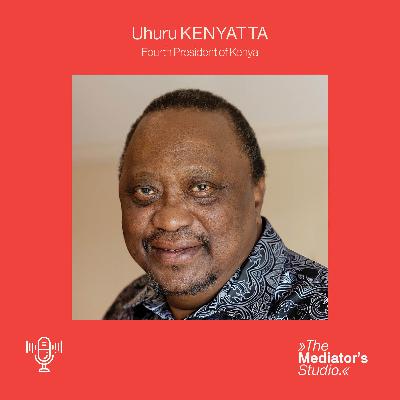
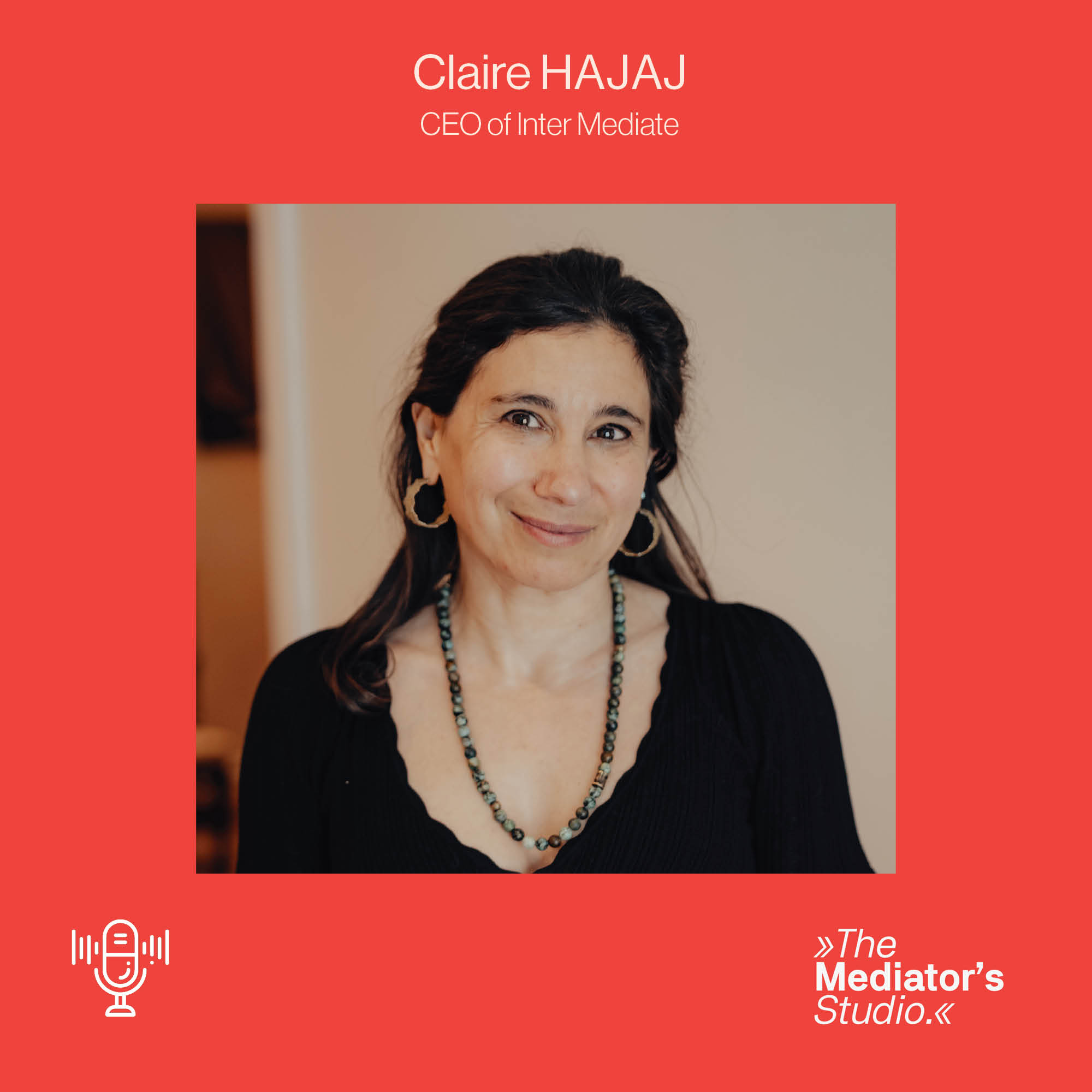
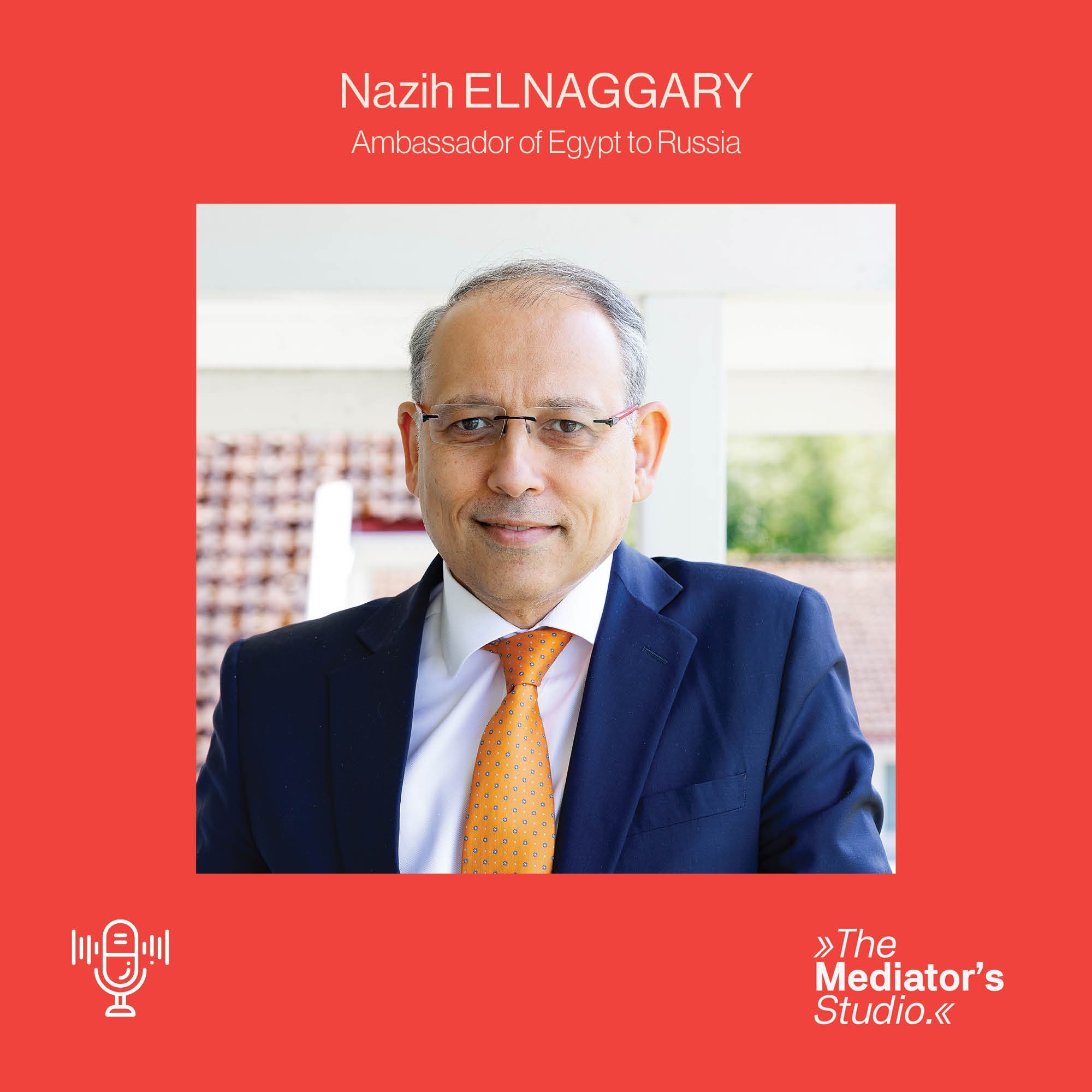
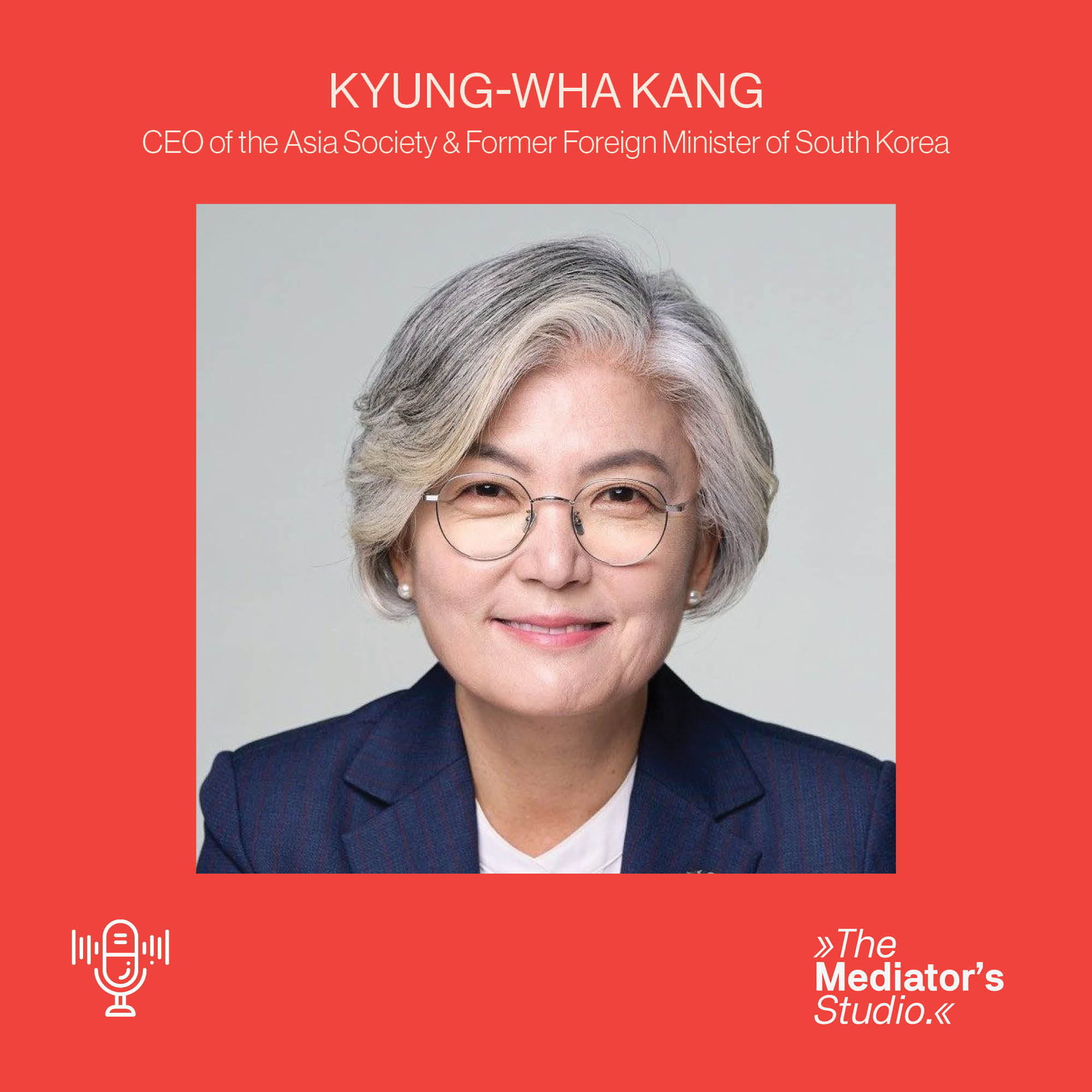
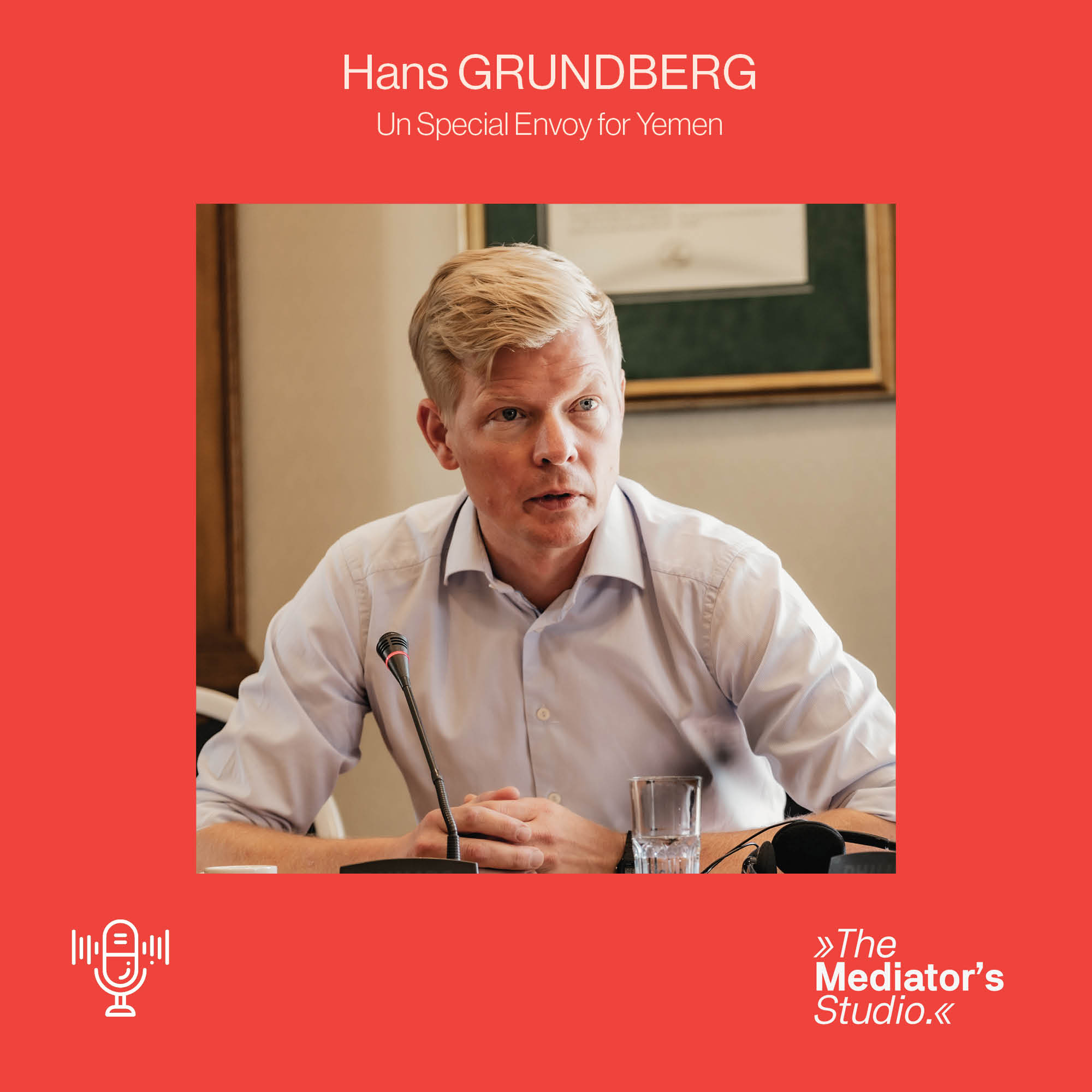
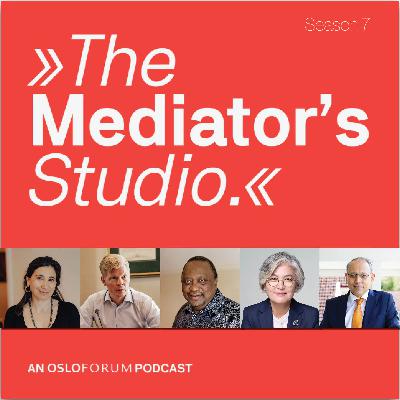
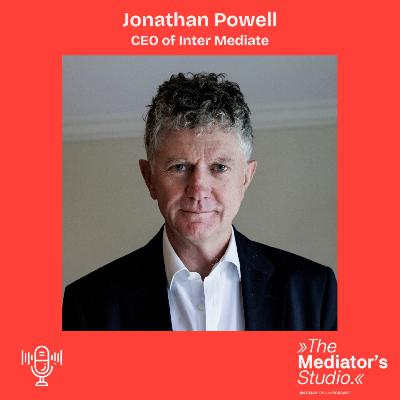

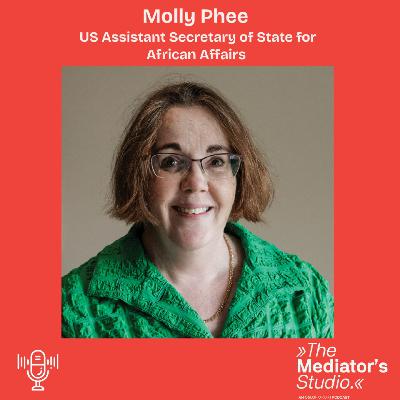
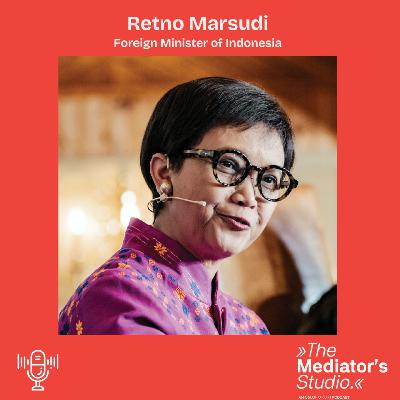
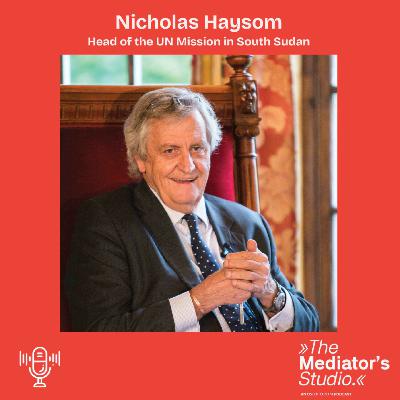
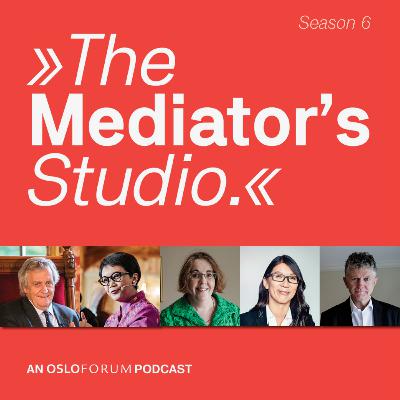
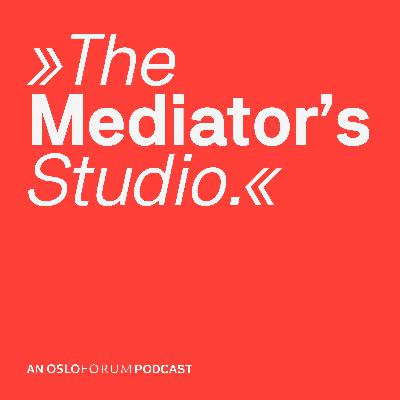



I like this podcast for the reason that it is increasing my resolve to be a diplomat in the future after learning about the several struggles that the diplomats and mediators undergo while negotiating different parties for a deal
Great episode
Amazing episode, thank you!!
thank you for this episode!!
Thank you for this inspiring episod.